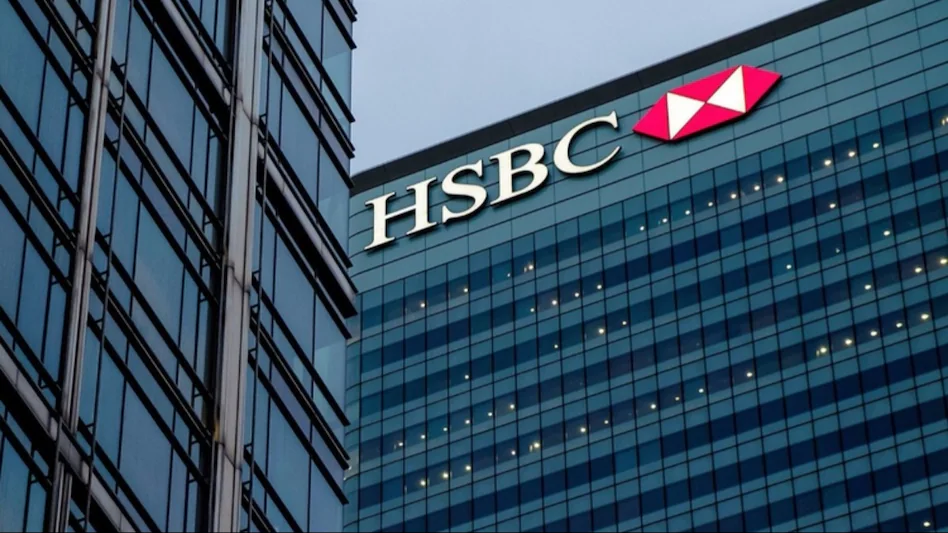In a remarkable display of resilience and foresight, HSBC (HSBA.L), one of Europe’s premier banking institutions, has outperformed expectations by propelling its profitability target ahead by a full year. Additionally, the bank has surged past projections by more than doubling its annual profit. This achievement is a testament to the unexpected absence of foreseen bad loans stemming from the COVID-19 pandemic, further bolstered by the positive influence of escalating interest rates on its income streams.
As part of a broader trend in the global banking sector, HSBC has benefited from the fortuitous trend of lower-than-anticipated impairment charges. The bank’s borrowers have been shielded by government support, which has been a lifeline in markets grappling with the repercussions of the pandemic. Simultaneously, an ongoing economic recovery is providing a tailwind to companies, aiding their stability and subsequently contributing to the bank’s strong financial performance.
Notably, the divergence from projections has prompted HSBC’s shares to experience a 3.4% decline in afternoon trade on a particular Tuesday. In contrast, the benchmark FTSE index demonstrated a relatively milder decline of 1.4%. This discrepancy can be attributed to the global stock market’s overall instability, partially fueled by escalating geopolitical tensions related to the unfolding Ukraine crisis.
Noel Quinn, Group Chief Executive of HSBC, voiced his optimism, stating, “We have good momentum coming into 2022 and are confident that we can continue to execute against our strategy.” This sentiment was conveyed through the bank’s strategic move to initiate a share buyback program worth $1 billion after the successful completion of an existing $2 billion buyback initiative.
HSBC’s proactive approach to the shifting financial landscape further hinges on the anticipation of central bank interest rate hikes worldwide. This projection is grounded in the belief that such developments will subsequently enhance lending margins, effectively driving the bank toward its ambitious goal of achieving a double-digit return on equity by 2023—a year earlier than initially projected.
Given its considerable presence in the Asian market, HSBC is not immune to the potential impacts of regional policies, such as the zero-COVID approach. Industry experts, like Sudeepto Mukherjee, Head of Financial Services at consultancy Publicis Sapient, speculate on whether HSBC’s extensive footprint in Asia might expose it to distinctive challenges compared to more UK-focused competitors in London. This intriguing aspect adds a layer of complexity to the bank’s performance outlook in the upcoming year.
Noel Quinn’s leadership tenure has been marked by a steadfast commitment to HSBC’s strategic pivot toward Asia. This strategy is evidenced by the relocation of key global executives to the region and substantial investments in the burgeoning wealth management sector. This lucrative business segment has become a focal point for the bank, with billions of dollars dedicated to its expansion and refinement.
Unveiling its financial achievements, HSBC reported an impressive pre-tax profit of $18.9 billion for the previous year, representing a remarkable upswing from the $8.8 billion reported in the preceding year. Strikingly, this result nearly mirrors the average of 17 analyst estimates compiled by HSBC, which stood at $19.1 billion. The substantial contribution of Asia to this profit is particularly noteworthy, accounting for a substantial 65% of the total figure.
Notably, Citi analysts weighed in on HSBC’s projected performance for the ongoing year, largely affirming that the bank’s guidance aligns closely with consensus expectations. They also noted potential downside risks related to provisions and upside risks tied to capital return, underscoring the intricacies of the financial landscape that HSBC operates within.
Acknowledging the evolving economic dynamics, HSBC accounted for a $500 million charge to address anticipated credit losses during a specific quarter. This charge was primarily attributed to the downturn experienced in China’s commercial real estate sector—an illustration of the bank’s proactive risk management strategies.
HSBC’s projection for the initial quarter of 2022 outlines expectations of comparatively weaker performance in its Asian wealth management sector. This anticipation takes into account global market weakness and the temporary closure of bank branches in Hong Kong. Despite these challenges, the bank is optimistic about a subsequent rebound later in the year.
The peculiar juxtaposition of an opening global economy and Hong Kong’s tightening pandemic restrictions—HSBC’s largest market—paints a nuanced picture of the bank’s operating landscape. While most economies are experiencing gradual reopening, Hong Kong’s rigorous containment measures in response to an escalating COVID-19 outbreak pose unique challenges and raise concerns about their potential economic impact.
HSBC’s robust performance coincides with a similar trajectory exhibited by Standard Chartered (STAN.L), another prominent player in the banking arena. Standard Chartered has also realigned its core profitability objectives, banking on the potential of interest rate increases to invigorate lending activities.
In the realm of stock market performance, HSBC’s London-listed shares have achieved a remarkable 29% increase over the past year. This growth significantly outpaces the 16% rise observed in Standard Chartered and the 25% surge in Barclays (BARC.L), underscoring HSBC’s notable momentum in the market.
Despite reporting a 2% decline in revenue for 2021, largely attributed to global interest rate levels and diminished income in its markets business, HSBC remains optimistic. The bank anticipates that the trajectory of rising interest rates in the current year and beyond will act as a catalyst to reverse the downward revenue trend. Noel Quinn expressed confidence in this turnaround, asserting, “After absorbing the impact of low interest rates for some time, we believe we have turned the corner on revenue.”
One of the most impressive feats in HSBC’s financial narrative involves the release of $900 million in cash that had been set aside as a precaution against pandemic-induced bad loans. This stands in stark contrast to the previous year’s corresponding period, during which the bank allocated $8.8 billion in response to anticipated losses. This dramatic shift further exemplifies HSBC’s adept navigation of the intricate financial landscape, characterized by its responsiveness to evolving market conditions.
In conclusion, HSBC’s accelerated pursuit of profitability targets and remarkable financial accomplishments underscore the bank’s adaptability and strategic acumen. These achievements are rooted in its ability to leverage government support for borrowers, capitalize on global economic recovery, and strategically position itself in dynamic markets, particularly in Asia. The bank’s ability to successfully navigate through challenges, such as pandemic-related uncertainties and geopolitical tensions, solidifies its position as a leading player in the ever-evolving world of finance.












